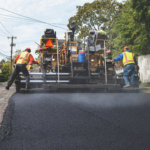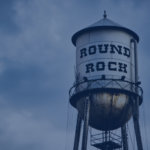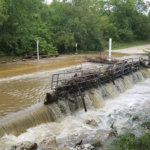The City of Round Rock’s ratings for citizen satisfaction are among the highest in the nation, according to the results of a Community Survey released Tuesday, Aug. 19.
When asked about overall city services, 93 percent of survey respondents were either “Very Satisfied” or “Satisfied,” while only 1 percent were “Unsatisfied.”
“Your overall satisfaction rating is among the highest in the nation,” said Chris Tatham of ETC Institute, which conducted the survey. “I can only think of 5 to 10 cities out of the hundreds we survey that ever pass the 90 percent rating. When I see a 90 percent rating, I think that is exceptional. I think the highest I’ve ever seen is 95 percent, so you definitely are in an elite group.”
The City hired ETC Institute to conduct its biennial community survey in late spring. The results were presented to the Round Rock City Council on Aug. 14. The survey, which was completed by 410 randomly selected residents, has a 4.8 percent margin of error.
Survey highlights include:
- 91 percent of residents who had an opinion were satisfied with the overall quality of life in the City, 7 percent were neutral and only 2 percent were dissatisfied
- 93 percent of residents who had an opinion were “very satisfied” or “satisfied” with the overall quality of services provided by the City, an increase of 18 percent from 2012
- 72 percent of residents felt traffic flow in the City was getting worse compared to two years ago
- 62 percent of residents rated traffic flow in and around neighborhoods as “excellent” or “good” and 18 percent of residents rated traffic flow on state roads and highways as “excellent” or “good.”
- Most residents felt safe in Round Rock. Ninety-three percent residents who had an opinion felt “very safe” or “safe” in the City. The areas where residents felt most safe were: in their neighborhood during the day (96 percent), in Downtown Round Rock (90 percent), and in their neighborhood at night (86 percent).
- Regarding customer service, 75 percent of residents who had contacted the City during the past year described the service they received as “excellent” or “good.”
Said Round Rock City Manager Steve Norwood: “I think these results speak volumes about the quality of employees we have here in Round Rock. It’s very obvious they are dedicated and have a strong commitment to public service and making a positive difference to our residents and visitors alike.”
Tatham noted the City has seen major improvement in all but one major category in the two years since the last survey, and that Round Rock ranks well ahead of other cities both regionally and nationally.
“You are above the national average in every single area except one (traffic management), which isn’t a surprise,” Tatham told the City Council. “So congratulations, because you didn’t get there overnight. The first time I came here (in 2010) I thought, ‘Well, Round Rock is an above average performer.’ But you’re going from being an above average performer to an elite performer, and that’s particularly rare to see since 2008, when most communities had to be more fiscally responsible or had other challenges as a result of the recession.”
Among the 14 major categories of City services that were assessed, there has been a significant improvement in nine areas since 2012:
- City communication with the public (+13 percent)
- Police services (+11 percent)
- Customer service provided by City employees (+10 percent)
- Water and wastewater services (+9 percent)
- Parks and recreation programs (+9 percent)
- Emergency medical services (+9 percent)
- Trash, recycling, and yard waste collection services (+8 percent)
- Fire services (+6 percent)
- Library services (+5 percent)
The only area that showed a significant decrease from 2012 was transportation planning (-7 percent).







